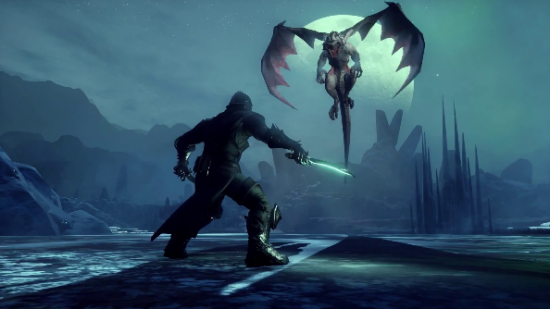Alexis Kennedy is afraid of the sea. His best-known game, Sunless Sea, is about a dangerous Lovecraftian ocean – yet, in it, the camera takes a bird’s-eye view, pulling players safely away from the cold embrace of its dark depths. The Failbetter Games founder has a good reason for his thalassophobia: his desire to stay away from the lapping waves and the alien world that lives beneath the surface – you see, the ocean took his father.
On June 25, 1973, Hugh Peter Calday Kennedy, a pilot in the Royal Air Force, was piloting his Phantom FGR.2 fighter jet on a routine flight over the North Sea. Somewhere, something went wrong, because the plane crashed into the ocean and Kennedy, as well as his navigator, David Noel Hodges, were never seen again.
“The range officer saw an explosion, reported it, and he didn’t come back,” Alexis Kennedy tells me. “The air accident report theorised that, unlike the three previous pilots who had been out on the range that night, he applied afterburners, which gives the impression of pitching upwards, even when you’re actually pitched forwards. It was a moonless night, he was flying on instruments, there was a risk of ice. If his scan pattern had been interrupted for as long as four seconds, that could have been enough for him to plow into the sea. But they’ve got no radio transmissions, neither he nor the navigator bailed out, and they never recovered the bodies.”
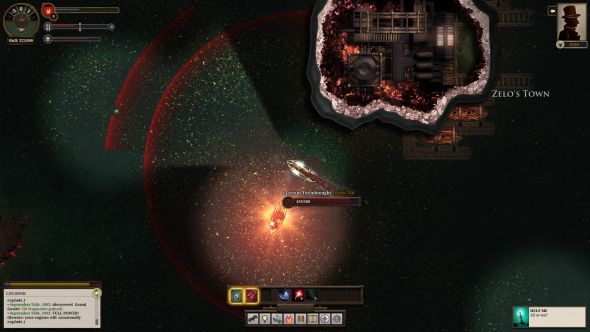
Kennedy was almost two-years-old at the time so he can’t recall the period, but his mother tells him that he spent weeks rushing to the door and calling his father every time a car came by. One night, when he realised his dad wasn’t coming home, he cried himself to sleep. “I don’t remember any of this, but I suspect it’s the kind of thing that leaves an impression,” Kennedy says. “The fucking tragic thing about this is – it was this young happy couple and he just disappeared overnight. She never saw the body; there was a memorial service, obviously, but she found that she was two months pregnant. She named him after my father, Hugh.”
Hugh Kennedy began suffering from mental illness at the age of 18 and was institutionalised. “He escaped from the institution twice,” Kennedy remembers. “When I asked him how he did it, he said ‘Well, I am a ninja, Alexis’. At one of the tribunals where he was being assessed for release into the community, they said ‘So how do you think these people felt when you came out of their wardrobe so suddenly?’ He’d been in some elderly couple’s house. When asked how he thought they felt, he said ‘a bit surprised at first, I suppose, but then happy and excited.’ There was no malice in it. He was released into my mother’s care, but on anti-psychotics that kept him stable but left him subdued and miserable. And then two days after Valentine’s Day, in 1996, he put his head on a train track.”
Death has been a big part of Kennedy’s life, so he’s well aware of how someone can be cruelly snatched away. He got some insight into his father’s personality by reading his few remaining books: Lord of the Rings, The Shape of Things to Come, a Michael Moorcock-curated New World sci-fi anthology – which, at eight-years-old, “blew the fucking top off” Kennedy’s head – and a grim book called Implosion, a story set in a dystopian future in the vein of Children of Men and The Handmaid’s Tale. Reading his father’s books at such a young age helped form Alexis’ taste for dark fiction, while the impact of those losses always sat at the back of his mind.
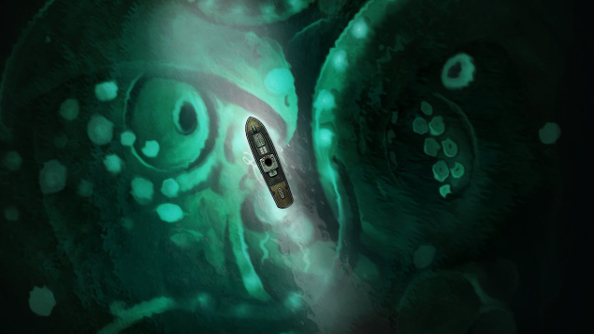
You see, all Kennedy’s games are about death. Sunless Sea, a game where you control a ship captain as he crosses an eldritch ocean full of dangers that can easily snatch your life away, has obvious parallels with the tragedy that befell his father, though Kennedy says this wasn’t intentional. He wrote about the sudden realisation in a blog post called Why the Unterzee Eats Ships.
“The Father’s Bones plotline in Sunless Sea – where you literally have to go and recover your father’s bones – when I wrote it I was thinking of [Shakespeare’s] The Tempest,” Kennedy remembers. “‘Full fathom five thy father lies; of his bones are coral made’ – this always spoke to me as well. Of course, the reason it always spoke to me was because my father’s bones are somewhere in the North Sea. I worked on Sunless Sea for months before I made the connection consciously. It was 40 years before, when he died. It’s not like I never thought of it, but it fades into the background. But I have always been scared of the sea.”
Kennedy doesn’t mind the sea from a safe distance – when he’s in a plane and it looks almost pretend, for instance, all the toy boats skidding along its glassy surface. It’s when he’s near the sea and can see its violence, where his imagination can wonder what’s below the surface, what unsavoury things lurk in its depths. Like in Sunless Sea, he feels safer from a vantage point.
“Sunless Sea is innately a metaphor for the unexplored,” Kennedy says. “One of the things I brought away from my father’s and brother’s deaths is the sense of how arbitrary death can be, even when you feel completely safe. I was talking to my girlfriend a while ago and she was like, ‘AK, is all your work about death?’ I hadn’t thought about it in those terms, but I said, ‘Yeah, actually’. Fallen London is about loss, it’s about what you’re prepared to give up to satisfy your desires. It’s about a city that’s shut away from the sunlight, and though they don’t die, they would if they ever see the sun. Death is something that walks beside you through your life, and most of the time it’s invisible, but at any moment it can put its hand on your shoulder or take someone next to you.”
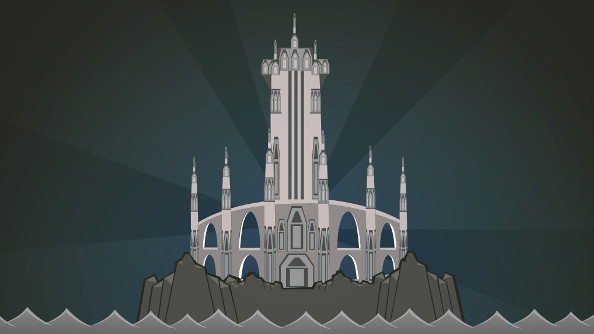
Kennedy tries to capture the chaos of the world in his games. To achieve this, he tries to bottle its arbitrary nature, even in virtual worlds that are logical and man-made, capturing the randomness of this weird ball of rock hurtling through space. Add in a sprinkling of gallows humour and you’ve got a thematic constant.
The writer recently did a freelance writing stint at BioWare, working on a specific section for a game in the Dragon Age series. If you were a betting person, your money would be safe if you put it on Kennedy’s involvement being something to do with death, containing dark humour, and possibly passing through a metaphorical mirror.
“Dragon Age 4 – we can neither confirm or deny,” Kennedy laughs. “This is what people assume I was working on and nobody at BioWare has said ‘that is a crazy assumption’, but, equally, neither have they said, and neither have I said, that’s what I’m working on. It is confirmed to be a project in the Dragon Age franchise and I did work with Dragon Age writers…
“They hived off a bit of the lore for me to go and do a deep dive on, and develop a bunch of typically gothic, miserablist, surreal, Kennedy stuff. I think it would not be surprising if it were about death, and I think that element will survive if nothing else does – it will be related to the body of my work.” The section Kennedy is developing will be a playable part of the story, not just background lore, which means he’s fleshed out characters, written dialogue, and worked on the backstory.
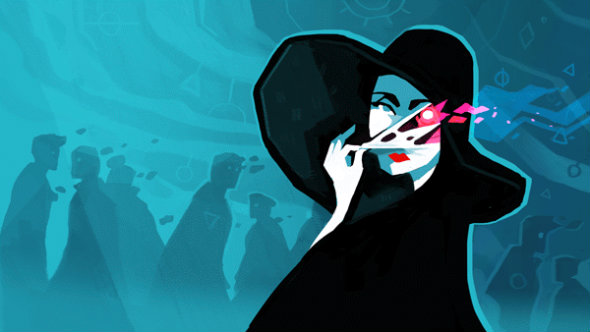
After six months with BioWare, he’s now back at it as a lone agent, making another game about death: Cultist Simulator. Well, death and longing. Just as people miss loved ones who are gone from their lives, we sometimes miss things we never had. And that longing might lead us to wonder, ‘What’s on the other side of the ocean?’
“The ‘sea’ in [Cultist Simulator] is the skin of the world,” Kennedy explains. “You feel like something is missing. If you feel a yearning for something more, or you feel anger, or you want power – if you’re living in a world where the occult has real effect, you would pick away at the skin of the world until you find the bright colours underneath, and then you would do unwise things for them.”
Kennedy thinks death is the thing that unifies us all. Not everyone knows their parents, not everyone has access to clean water or the internet, we don’t all get to enjoy videogames. But death is universal. We all die and we all lose loved ones, and our nature means we’re forced to consider our own end. Like Kennedy’s fear of the ocean, and the creation of Sunless Sea, sometimes it’s best to confront death head on.
